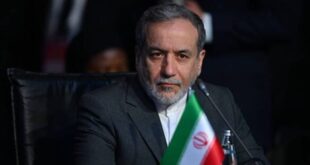 TEHRAN (FNA)- Iranian President Mahmoud Ahmadinejad said Thursday that NATO forces paid insufficient attention to humanitarian problems in Afghanistan, that Iraqi forces should be given more responsibility for security and that he was “unhappy” with the situation in Georgia.
TEHRAN (FNA)- Iranian President Mahmoud Ahmadinejad said Thursday that NATO forces paid insufficient attention to humanitarian problems in Afghanistan, that Iraqi forces should be given more responsibility for security and that he was “unhappy” with the situation in Georgia.
He agreed that Iraq was notably less violent than in the past, but attributed that not to American military strategy but instead to handoffs to the Iraqi military.
“In every sector where security has been handed over to the Iraqi government, things are calmer and managed better,” Ahmadinejad, in New York for the annual opening of the General Assembly at the United Nations, said in an interview with The New York Times.
He said this gradual transfer of power was one of the few areas in which Tehran agreed with American policy.
Seated before an Iranian flag in a small conference room in a Midtown hotel, the president held forth at length on American policy and history. The subtext running through many of his remarks was that he understood the hearts of the American people, who would express their natural affinity with the Islamic Republic if only Washington did not get in the way.
Growing world problems like war and poverty are the result of American mismanagement of global affairs, he said at one point.
“We don’t want all this, we like to have friendships,” he said. “I really don’t think that the American people like what they see either. If American people had the chance to truly express themselves they would definitely express opposition to how the world has been run.”
On Afghanistan, Ahmadinejad said he thought that the United States and NATO forces there were putting too much emphasis on a military solution in a country that they did not really understand.
“They simply think that all problems can be fixed with military might and bombs and guns,” Ahmadinejad said. “In Afghanistan, with the level of human calamity, a humanitarian approach must be adopted. Otherwise, extremism will be on the rise again, and next time NATO won’t be able to stop it.”
Iran had its own problems with the former Taliban government, which was especially abusive toward the Shiite minority in Afghanistan, and Iran cooperated with the United States in speeding its overthrow. At the time, it was seen as a possible route for détente between Washington and Tehran, whose ties soured with the 1979 Islamic Revolution.
But that cooperation basically stopped in January 2002, when President Bush named Iran as one of three nations in an “axis of evil,” along with Iraq and North Korea.
Ahmadinejad said Iran would be much more guarded about similar help in the future.
“We helped in Afghanistan; the result of that assistance was Mr. Bush directly threatening us with a military attack,” the president said. “For six years he has been engaged in similar talk against us. Next time around, we need to take more measured steps, more firm steps.”
In speaking with a small group of reporters, editors and columnists from The Times for nearly an hour, Ahmadinejad echoed some of the themes he has voiced in other public statements during his visit this year. This included suggesting that the next American president should mend relations with Iran and pursue a less interventionist foreign policy.
Regarding relations with the United States, Ahmadinejad said that the door was open but that the Iranian government was in no rush to walk through it.
He further pointed to the United States’ financial problems, including the proposed $700 billion bailout of Wall Street, and suggested that the United States fix its problems rather than meddle in other countries.
 Eurasia Press & News
Eurasia Press & News



